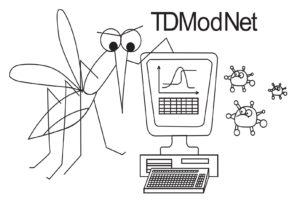
Influenza dynamics at the animal-human interface in relation to swine production systems in Cambodia
Principal supervisor: Dr James Rudge (LSHTM)
Co-Supervisor: Dr Guillaume Founié (RVC)
Co-Supervisor: Prof Graham Medley (LSHTM)
Award includes tuition fees and a stipend of £16,777 including London Weighting (at 2018/19 rates, so slightly higher for 2019 entry)
100% FTE for 3 years, from September 2019.
Closing date for applications is:
31st March 2019
Project Description:
Influenza pandemics evolve undetected in animal hosts for several years before detection in humans, and the role of swine in the 2009-H1N1 pandemic is well documented. However, little is known about the ecology and evolution of influenza viruses in pigs, particularly in Southeast Asia, where surveillance is limited, and conditions are fertile for virus re-assortment and pandemic emergence. Consumption and production of livestock in this region has increased dramatically in recent years, with livestock systems undergoing rapid change. The implications for zoonotic and pandemic disease emergence remain unclear but are likely to be profound. In Cambodia, for example, the supply of pigs still relies largely on smallholders with low biosecurity, along with importation of pigs from neighbouring countries. However, numbers of larger-scale intensive farms are increasing, and often located in close proximity, or otherwise connected (e.g. via trading and contract farming), to smallholder systems. A better understanding of influenza dynamics at the swine-human interface is needed to identify where risks of zoonotic transmission and virus re-assortment are highest, and how these risks are influenced by livestock practices.
This project will aim to characterise influenza dynamics in relation to swine production systems in Cambodia, to inform pandemic surveillance and risk mitigation strategies in resource-limited settings. Integrated within a larger programme of work on zoonotic and pandemic influenza risk, it will involve field surveys and network analyses to reconstruct animal movement networks within and across different pig production systems in Cambodia. Mathematical models of enzootic and zoonotic influenza transmission dynamics will be developed and fitted to epidemiological (serological and virological) data from pigs and humans. The models will be used to simulate influenza dynamics under current and anticipated pig sector configurations, and evaluate the effectiveness of strategies for detection and mitigation of zoonotic and pandemic emergence.
The findings will have potential to inform policies for early detection and reduction of zoonotic and pandemic risk, through targeted surveillance strategies and modification of livestock practices. The developed models will also provide a tool to explore how growth and intensification of livestock sectors impact on zoonotic and pandemic risk.
Non-EU people can apply, though strong reassurance/evidence that the remaining tuition fees will be covered is needed (at least GBP 40,000.00 – GBP 45,000.00) Two different types of funding/sponsorships simultaneously due to the potential conflicts of funding requirements must be considered or addressed.
